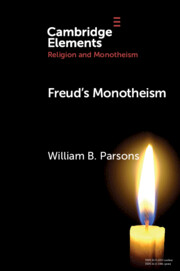Element contents
Freud's Monotheism
Published online by Cambridge University Press: 22 December 2022
Summary
- Type
- Element
- Information
- Online ISBN: 9781108919975Publisher: Cambridge University PressPrint publication: 26 January 2023
References
- 11
- Cited by



